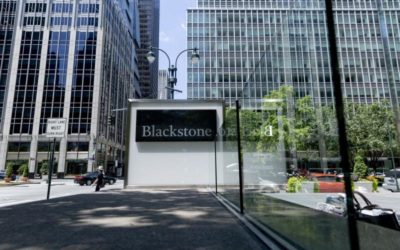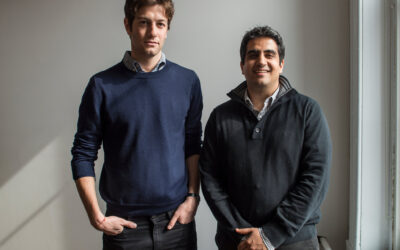The London Stock Exchange is exploring how to entice “blank cheque companies” to the UK while the US market booms.
So far this year, $48bn has been raised by US special purpose acquisition companies, or Spacs, which list on a stock exchange, raise money for an acquisition, then look for a private company to buy and bring on to the stock market. For the US, that is more than three times last year’s haul. In the UK, the 2020 running total for Spac launches is zero.
With momentum accelerating in the US and London’s initial public offerings sluggish, the LSE is engaged in early-stage discussions about how to kickstart the UK industry for lucky-dip deals.
“The banks see an enormous amount of activity going on in the US and think ‘could that be replicated over here?’ They’re interested in it,” said one person familiar with the LSE’s discussions.
Spacs have been gaining popularity in the US since 2017 as investors seek ways to make money in an era of low interest rates. The deals can also look attractive to investors looking for private equity-style deals with the added safety and liquidity of the public markets.
Despite the uncertainty inherent in backing these shell companies, and a reputation tarnished by a series of high-profile failures after the 2008 financial crisis, US Spacs are relatively low risk for investors. Shareholders vote on whether to approve the sponsor’s target company and can get their money back whether or not the target is approved.
In the UK, investing in Spacs is a bigger gamble. Typically, shareholders are not able to vote on targets or redeem their funds so easily, although sponsors can choose to include both features. Investors generally get their money back only if an acquisition is not made within the specified timeframe, often two years.
“If you’re a UK institutional shareholder looking at that model — whether you know what the US model is or not — it doesn’t appear to be terribly attractive unless the team is led by well recognised superstars,” said Paul Amiss, partner at law firm Winston & Strawn.
When a UK Spac buys a company, the transaction is classed as a reverse takeover and the Spac’s shares are suspended. Under the rules set by the financial regulator, trading cannot resume until a deal prospectus is published, for which there is no deadline. That means Spac investors who do not support the takeover, and wish to sell their shares, can have their money locked up for some time. Several Spacs that listed in 2017 remain suspended.
That less investor friendly environment has made it difficult for all but the best connected and most trusted sponsors to successfully raise funds and launch the vehicles in London.
Bringing a Spac to life in the UK is “incredibly difficult to do under the current rules,” said Patrick Evans, head of UK equity capital markets at Citi. Investors are “totally backing the management team” of the sponsor who is looking for a company to acquire, and most will therefore probably want to have good pre-existing relationships with them.
Carl Bradshaw, a partner at law firm Goodwin’s private equity practice, said there were “lots [of Spacs] that are talked about that don’t successfully launch”.
How to lure more Spacs to London is a challenge both the LSE and others are keen to address.
Carlton Nelson, co-head of corporate broking at Investec, said his clients had noted the high levels of activity in the US and were wondering “why they can’t be successful here”.
Analysts say changes to the UK’s Spac rules would help, such as removing the share-suspension requirement. The FCA declined to comment.
“We are in continuous dialogue with stakeholders and regulators about keeping the London market attractive and competitive for issuers and investors,” the LSE said.
Some UK investors are not yet comfortable with Spacs. “[They] have had a really chequered history,” said Gregory Perdon, co-chief investment officer at Arbuthnot Latham.
“Generally speaking we tend to decline the opportunity [to invest]. We like to know what we’re going to own,” he added.
A series of UK failures is “probably at the forefront of the disparity in activity in the European market as compared to the US,” said Mr Bradshaw at Goodwin.
Compared with the UK, the US has more Spac expertise and a deeper and less risk-averse investor base, which has helped generate interest, experts said.
Even if UK Spacs became more investor friendly, activity might not reach US levels, Mr Bradshaw added. “The jury is still out.”
Source: Financial Times
Can’t stop reading? Read more
US Pipeline Operator ONEOK Inks Two Deals for $5.9 Billion
US pipeline operator ONEOK Inc. agreed to buy a Permian Basin rival and a controlling stake in...
Blackstone Is Said to Seek A$5.5 Billion Loan for AirTrunk Bid
Private equity firm Blackstone Inc. is in discussions with banks for a five-year loan of about...
Thrive Capital to lead multi-billion dollar OpenAI investment round at $100bn valuation
OpenAI, the company behind the popular AI tool ChatGPT, is in advanced talks to secure several...




